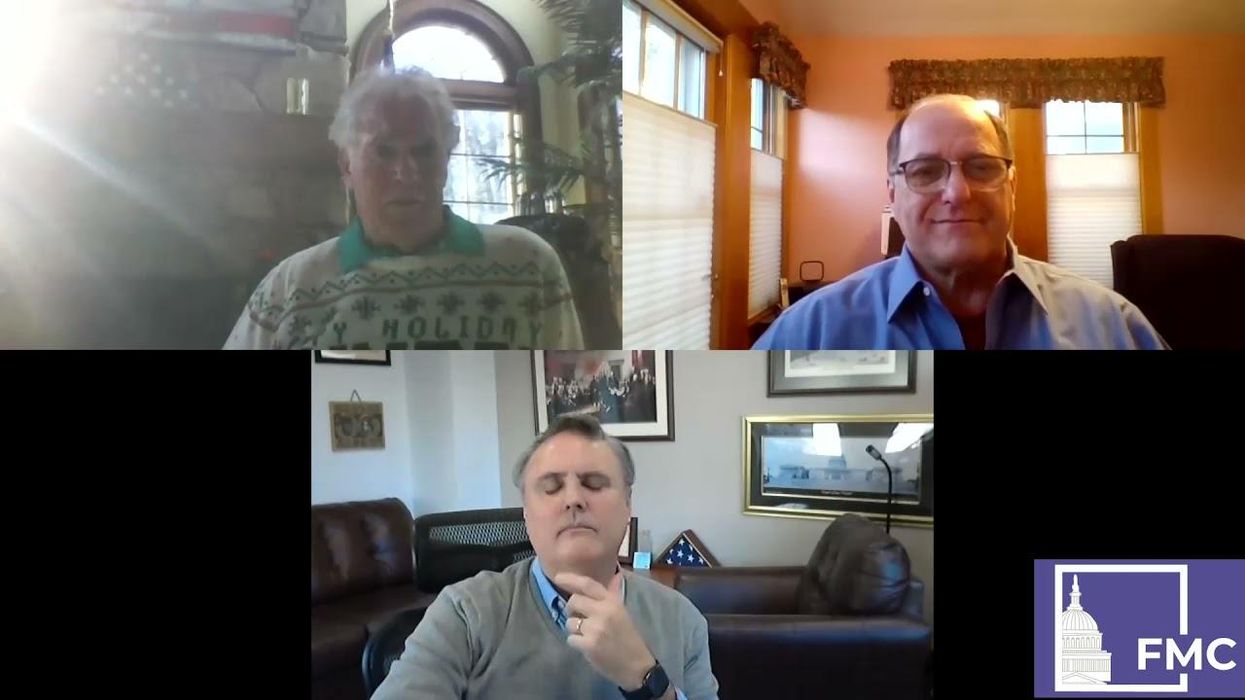From social media to cable news, all the American public sees from our leaders are partisan attacks and hyperbolic rhetoric, but that's not the way it has to be. To prove it, Former Members of Congress (FMC) and the Fulcrum have joined forces to bring you Congress at a Crossroads.
The monthly video series brings together former members of both parties to discuss the structural issues in today's Congress, as well as the hottest political issues. They won't always agree, but they will always treat each other with respect and civility.
This month, FMC CEO Pete Weichlein sat down with Former Reps. Mike Capuano (D-MA) and Phil Gingrey (R-GA) to discuss how we got to a place in our politics where the most extreme voices on both sides completely dominate the conversation and what measures we can take as a country to fix it.




















Trump & Hegseth gave Mark Kelly a huge 2028 gift